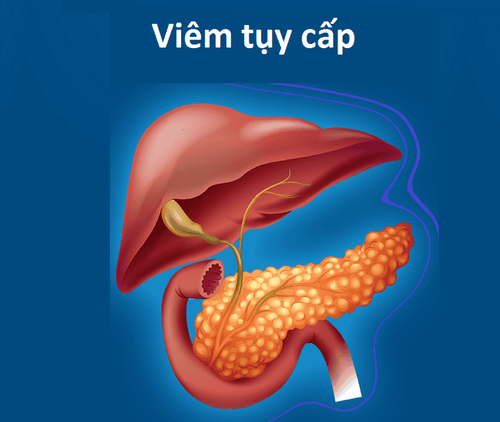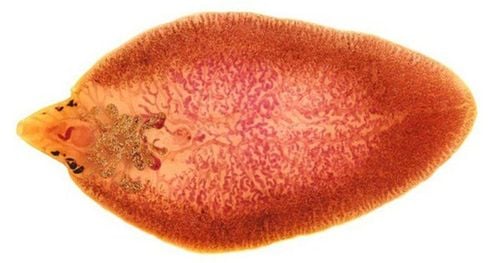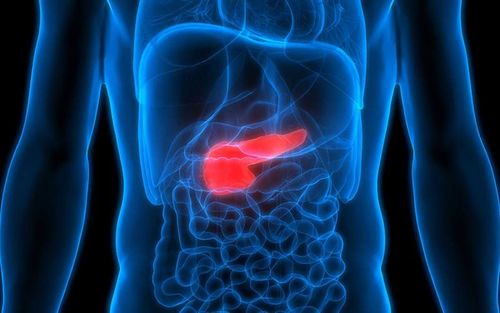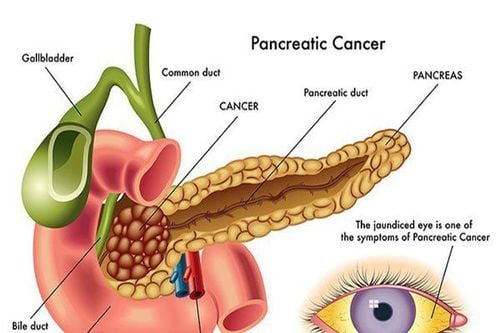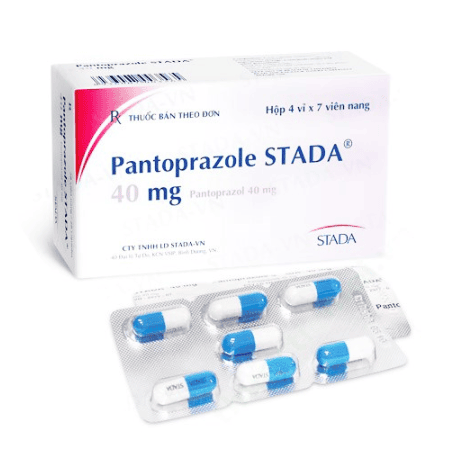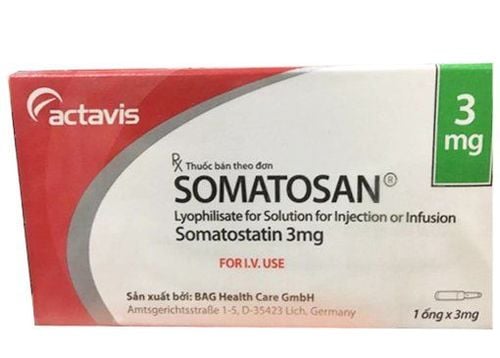This is an automatically translated article.
The article was written by Dr. BS Vu Hoang Huy - Emergency Doctor - Emergency Department - Vinmec Times City International Hospital
Acute pancreatitis is an acute disease of the pancreas that can range from edematous pancreatitis to hemorrhagic and necrotizing pancreatitis. This is a common abdominal emergency. If not treated promptly, it can cause dangerous complications such as pleural effusion.
1. What is acute pancreatitis?
Acute pancreatitis is an acute inflammatory process of the pancreas and histological destruction of pancreatic cells, with a wide range of clinical manifestations and changes, from local inflammation to systemic manifestations such as renal failure. the agencies.
2. Symptoms of acute pancreatitis
Symptoms of acute pancreatitis include:
Abdominal pain (basic symptom): Epigastric abdominal pain, dull pain that is constantly dominant with severe pain, pain that radiates to the back, pain that increases when touched Abdomen, abdominal distension, usually onset after eating. Nausea and vomiting, sometimes loss of appetite

Passing loose stools many times. Severe symptoms:
Fever, tachycardia, shortness of breath Hypotension, hypoxemia, jaundice... Acute pancreatitis can occur when factors are involved in maintaining homeostasis of cellular imbalance damages pancreatic cells and impairs the secretion of zymogen granules; examples include: Use of alcohol, beer; gallstones and certain medications.
Trắc nghiệm: Làm thế nào để có một lá phổi khỏe mạnh?
Để nhận biết phổi của bạn có thật sự khỏe mạnh hay không và làm cách nào để có một lá phổi khỏe mạnh, bạn có thể thực hiện bài trắc nghiệm sau đây.3. Why does acute pancreatitis cause pleural effusion?
Pleural effusion is now considered a sign of severe acute pancreatitis. The pathophysiology of pleural effusion in acute pancreatitis is described as increased vascular permeability of the pulmonary capillaries that leak protein-rich fluid into the interstitial, pleural, and alveolar spaces. Clinical manifestations are hypoxemia, dyspnea and radiographic findings are diffuse infiltrates in the lung and pleural effusion and atelectasis. The two main causes of pleural effusion are lymphatic obstruction and secondary pancreatic fistula. Leakage or obstruction of the pancreatic duct is more likely to lead to pleural effusion if the disruption leads into the retroperitoneum and pleura. Pancreatic enzymes can enter the mediastinum and then rupture into the left or bilateral pleural space and thus create a connection between the pancreatic duct and the pleural space.
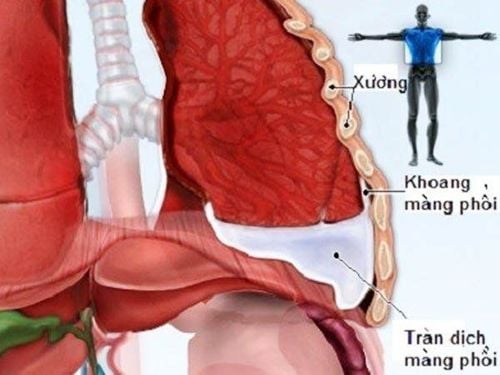
Pleural effusion in acute pancreatitis causes atelectasis and respiratory failure and requires treatment with thoracentesis.
4. Treatment of acute pancreatitis
4.1 Circulatory resuscitation Patients with severe acute pancreatitis often lose a very large amount of fluid, so when admitted to the hospital, a fluid volume of about 250-300 ml/hour is required for the first 24 hours. Ensuring hemodynamics means ensuring perfusion of organs, preventing the formation of multi-organ failure. 4.2 Renal resuscitation, electrolyte balance Adequate fluid resuscitation and perfusion are very important to limit the process of acute renal failure. Continuous hemodialysis (CVVH) in addition to improving kidney function, CVVH has been shown to remove cytokines and other inflammatory factors, thereby suppressing the inflammatory response, reducing the extent of organ damage and failure. .
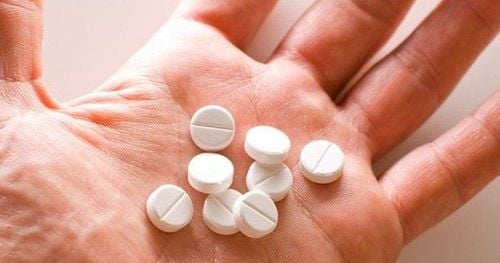
4.3 Sedative resuscitation and analgesia Abdominal pain is common in patients with acute pancreatitis. The use of analgesia and sedation during mechanical ventilation for patients with severe acute pancreatitis is really necessary. In addition to the effectiveness of increasing the patient's tolerance to artificial ventilation, analgesia also reduces the need for oxygen consumption.
4.4 Resuscitation against infection Blood culture, urine culture, pleural fluid, sputum culture, peritoneal fluid and pancreatic necrosis are indicated to find and isolate the source of infection and serve as an antibiotic map for treatment.... The initial selection of antibiotics is based on the frequency of bacteria and drug resistance in each locality and each hospital, then appoint antibiotics according to the antibiogram. 4.5 Nutrition For acute pancreatitis, the time to start eating is quite important, it is necessary to ensure enough energy from 25 - 30 kcal/kg/24 hours. Intravenous nutrition for the first 24 - 48 hours, then the patient should be fed early through a nasogastric tube in gradually increasing amounts. Early enteral nutrition limits infectious complications.
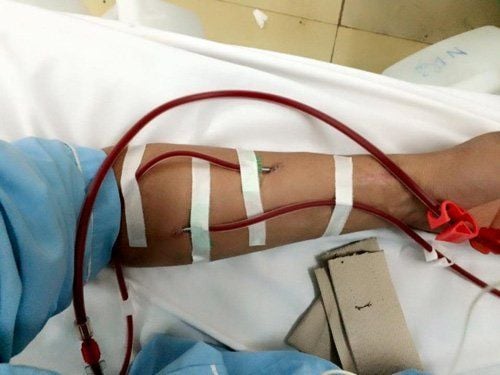
4.6 Continuous hemodialysis (CVVH), plasma replacement Studies that have demonstrated the role of circulating substances in the pathogenesis are the basis for the application of CVVH and plasma replacement techniques to remove cytokines and triglycerides, cut the pathological spiral. Clearance of inflammatory cytokines is thought to improve prognosis in patients with severe acute pancreatitis.
4.7 Percutaneous Abdominal Drainage Percutaneous abdominal drainage under ultrasound or CT guidance is less invasive than surgery, performed in bed, and is effective in draining foci. necrotic inflammatory fluid and at the same time avoid the spread of necrosis after surgery.
4.8 Surgical intervention Acute pancreatitis due to stones, biliary tract worms, pancreas: Cholecystectomy, early removal of biliary stones by laparoscopic intervention will reduce the severity of acute pancreatitis.
Vinmec International General Hospital is one of the hospitals that not only ensures professional quality with a team of leading medical doctors, modern equipment and technology, but also stands out for its examination and consultation services. comprehensive and professional medical consultation and treatment; civilized, polite, safe and sterile medical examination and treatment space. Customers when choosing to perform tests and treat diseases here can be completely assured of the accuracy and high efficiency in the treatment process.
Please dial HOTLINE for more information or register for an appointment HERE. Download MyVinmec app to make appointments faster and to manage your bookings easily.
MORE
How dangerous is acute pancreatitis? Complications and consequences of pleural effusion Severe acute pancreatitis symptoms





